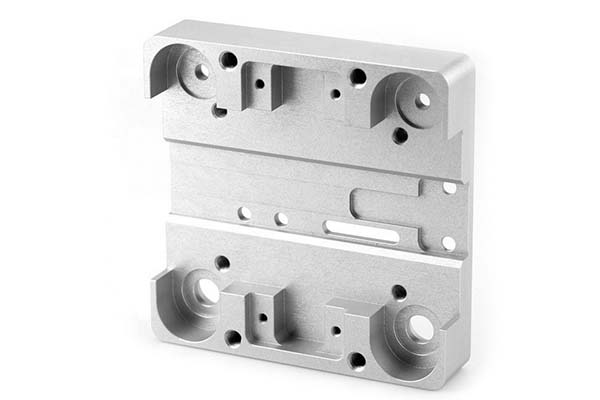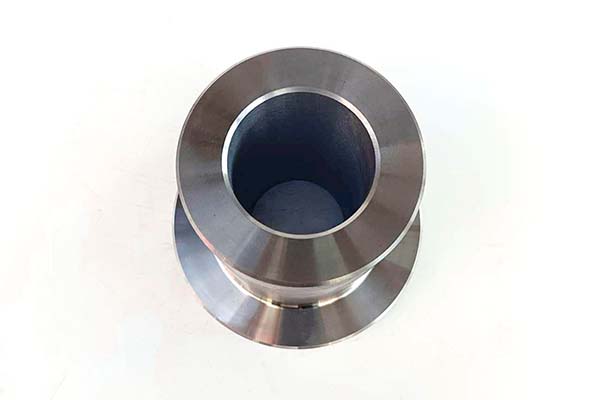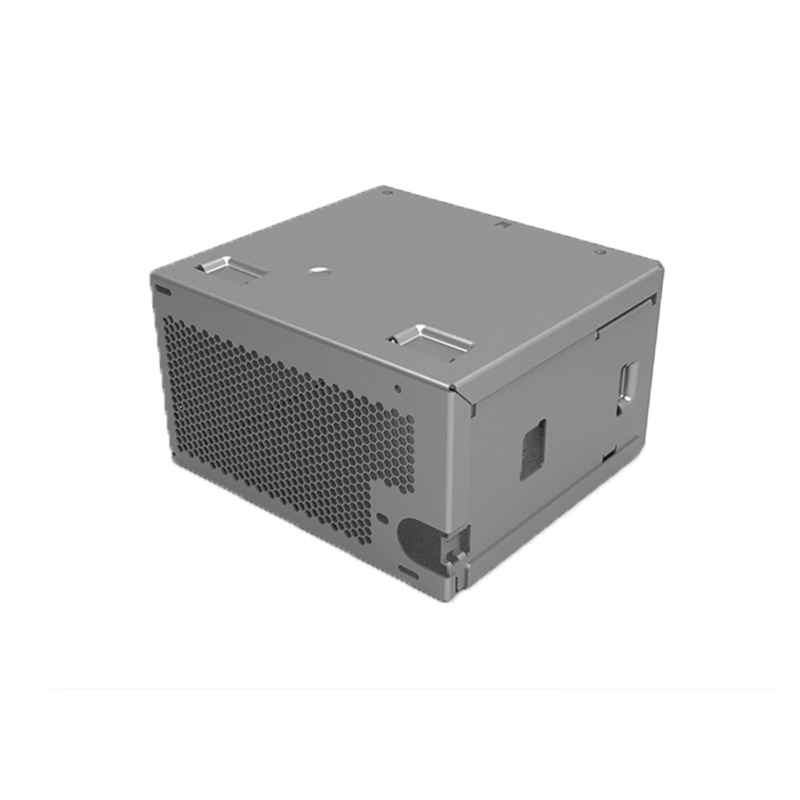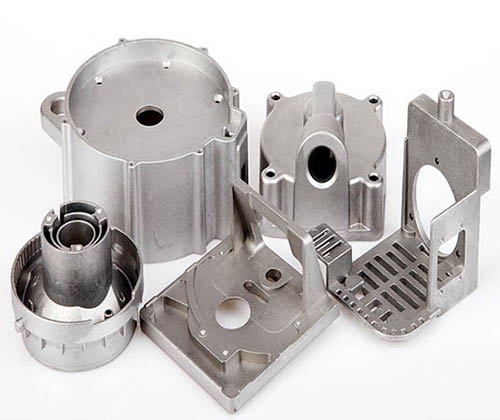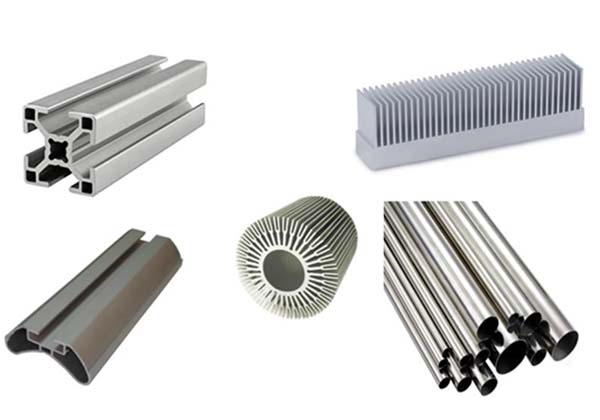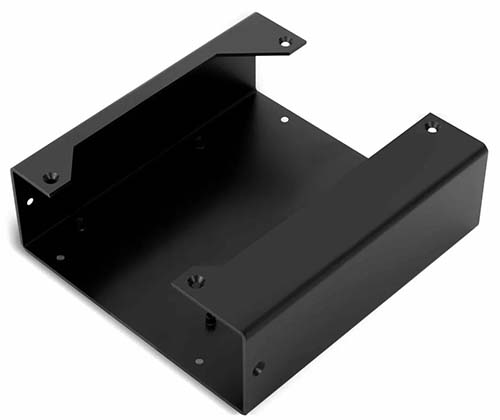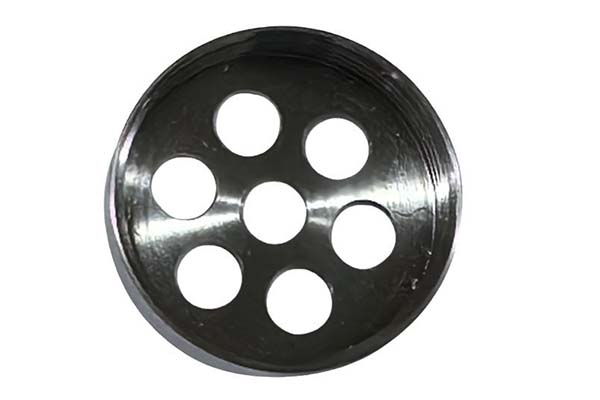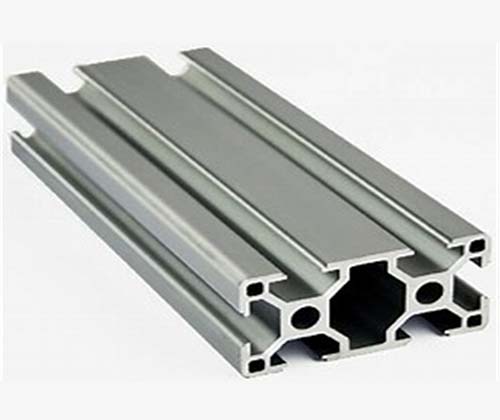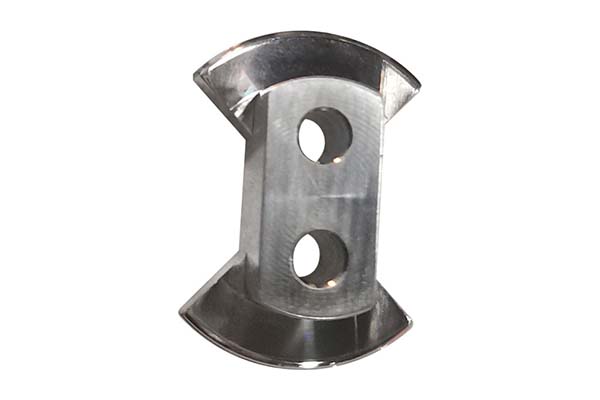Understanding the Importance of a Reliable Supplier
In the manufacturing industry, especially when dealing with die casting parts, choosing the right supplier is not just a matter of convenience; it's a strategic decision that can significantly impact your business's success. A reliable Die Casting Parts Supplier serves as a cornerstone for your operations, influencing various aspects of your production process and overall business performance.
Product Quality Assurance
The quality of die casting parts directly affects the quality and reliability of the final products. A trustworthy supplier uses high - grade raw materials and advanced manufacturing techniques. For Yigu Technology example, in the automotive industry, die - cast aluminum parts for engines need to have precise dimensions and excellent mechanical properties. A reliable supplier will adhere to strict quality control measures, such as conducting regular material inspections, implementing in - process quality checks during production, and performing comprehensive final product testing. This ensures that every part delivered meets or exceeds industry standards, reducing the risk of product failures, recalls, and costly rework. According to industry statistics, companies that source from reliable die casting suppliers experience a 30 - 50% reduction in product defect rates.
Stable Supply Chain
Maintaining a consistent supply of die casting parts is crucial for uninterrupted production. A reliable supplier has a well - organized production plan and inventory management system. They can handle sudden increases in demand, unexpected production delays, or supply chain disruptions with relative ease. For instance, during the global semiconductor shortage that also affected the die - casting industry due to the need for precision electronic components in manufacturing equipment, suppliers with strong supply chain management were able to source alternative materials or adjust production schedules to ensure their clients' orders were fulfilled on time. In contrast, businesses relying on unreliable suppliers faced production halts, leading to missed delivery deadlines and potential loss of customers.
Cost - Efficiency
While it may seem counterintuitive, choosing a high - quality die casting parts supplier can actually lead to cost savings in the long run. Although their initial prices might be slightly higher than those of less - reliable suppliers, the overall cost is reduced due to factors like lower defect rates, fewer production disruptions, and longer - lasting products. For example, a reliable supplier might use advanced die - casting technologies that result in better material utilization, reducing waste. They may also offer volume discounts for larger orders and provide cost - effective solutions for product design improvements. A study showed that companies working with reliable suppliers saved an average of 15 - 20% on production costs over a year compared to those dealing with sub - par suppliers.
Key Factors to Consider
Quality Assurance
Materials Used
The materials employed in die casting play a fundamental role in determining the quality of the final parts. Different materials possess distinct properties that make them suitable for various applications. For Yigu Technology example, aluminum alloys are widely used in die casting due to their low density, high strength - to - weight ratio, and excellent corrosion resistance. ADC12, a common aluminum alloy, has good fluidity during the casting process, which allows for the production of complex - shaped parts with high precision. It is often used in the manufacturing of automotive components such as engine blocks and transmission housings. A384, another aluminum alloy, offers high strength and good heat resistance, making it ideal for parts that need to withstand high - temperature environments, like certain engine parts.
When choosing a die casting parts supplier, it's crucial to ensure they have a comprehensive understanding of material properties and can recommend the most appropriate material for your specific needs. Consider factors such as the part's intended use, the environmental conditions it will be exposed to, and any mechanical or thermal requirements. If the part will be used in a high - stress mechanical application, a material with high tensile strength and fatigue resistance should be selected. For parts in outdoor applications, corrosion - resistant materials are essential.
Quality Control Processes
A reliable Die Casting Parts Supplier should have a robust quality control system in place. This includes the use of advanced inspection equipment. For instance, coordinate measuring machines (CMMs) are commonly used to accurately measure the dimensions of die - cast parts, ensuring they meet the specified tolerances. Some suppliers also utilize X - ray inspection to detect internal defects such as porosity or cracks that are not visible on the surface.
The frequency of quality checks is also important. Suppliers may conduct in - process inspections at multiple stages of production, such as after the die - casting process, during machining operations (if any), and before final packaging. Regular material testing is also carried out to verify the chemical composition and mechanical properties of the raw materials.
Quality control should adhere to recognized standards, such as ISO 9001. This international standard ensures that the supplier has a well - defined quality management system, covering aspects from design and development to production, installation, and servicing. A supplier that strictly follows these standards is more likely to produce high - quality die - casting parts consistently. Without strict quality control, the risk of receiving defective parts increases, which can lead to production delays, increased costs due to rework or replacement, and potential damage to your company's reputation.
Production Capabilities
Equipment and Technology
Advanced equipment and technology are hallmarks of a capable die casting parts supplier. State - of - the - art die - casting machines, such as high - pressure die - casting (HPDC) machines, can achieve higher injection speeds and pressures. This results in better - filled molds, producing parts with higher precision and better surface finish. These machines are also more energy - efficient, reducing production costs in the long run.
Some suppliers are now using computer - aided design (CAD) and computer - aided manufacturing (CAM) technologies. CAD allows for the creation of highly detailed 3D models of the die - casting parts, enabling better design optimization and error - detection before production. CAM then translates these designs into machine - readable instructions for the production equipment, ensuring accurate and efficient manufacturing.
Furthermore, the use of hot - chamber and cold - chamber die - casting processes depends on the type of material being used. Hot - chamber die - casting is more suitable for low - melting - point metals like zinc, as it offers faster cycle times. Cold - chamber die - casting, on the other hand, is preferred for higher - melting - point metals such as aluminum and magnesium, as it can handle the higher temperatures required. A supplier with expertise in both processes can offer more flexibility in production.
Production Capacity
Evaluating a supplier's production capacity is essential to ensure they can meet your current and future order volumes. One way to assess this is by looking at their production facilities. A large - scale production plant with multiple die - casting machines, sufficient workspace, and an organized layout is more likely to handle high - volume orders.
Consider the supplier's production schedules and lead times for different order quantities. For Yigu Technology example, if you anticipate a sudden increase in demand for a particular die - casting part, the supplier should be able to scale up production within a reasonable time frame. Some suppliers may also have contingency plans in place, such as backup equipment or additional labor resources, to handle unexpected production surges.
It's also beneficial to discuss long - term production plans with the supplier. If your business is growing and you expect to increase your orders over time, the supplier should be able to accommodate these changes without significant disruptions to your supply chain. This may involve the supplier's plans for expanding their production facilities, investing in new equipment, or improving their production processes.
Delivery and Lead Times
On - Time Delivery Record
On - time delivery is crucial for maintaining a smooth production process. A supplier with a poor on - time delivery record can cause significant disruptions to your business. For example, if you are assembling products and waiting for die - casting parts to arrive, any delay can lead to production halts, missed delivery deadlines to your customers, and potential loss of business.
To assess a supplier's on - time delivery record, you can ask for references from their existing customers or check online reviews if available. Some industry platforms may also provide data on suppliers' delivery performance. You can also request historical delivery data from the supplier themselves, which should include information on the number of orders, the actual delivery dates compared to the promised dates, and any reasons for delays.
Lead Time Flexibility
In addition to on - time delivery, a supplier's ability to be flexible with lead times is valuable. There may be situations where you need to place an emergency order due to unforeseen circumstances, such as a sudden increase in customer demand or a production issue with your existing inventory. A good supplier should be able to respond to such requests and provide a reasonable lead time for the emergency order.
When negotiating with a supplier, discuss their policies regarding lead - time changes. Find out if they charge additional fees for expedited orders and what their process is for handling changes to the original order schedule. A supplier that is willing to work with you to find solutions for lead - time challenges can be a more reliable partner in the long term.
Cost - Effectiveness
Pricing Structure
When evaluating a Die Casting Parts Supplier, it's important to understand their pricing structure. The price of die - casting parts is influenced by several factors, including the cost of raw materials, production processes, tooling costs, and overhead expenses. Some suppliers may offer a lower initial price but cut corners on quality, which can lead to higher costs in the long run due to increased defect rates and the need for rework.
For example, a supplier using lower - quality raw materials may charge less for the parts, but these parts may be more likely to fail during use, resulting in costly replacements and potential damage to the final product. Tooling costs can also be a significant factor. If a supplier has high - quality, long - lasting tools, they may spread the tooling cost over a larger number of parts, resulting in a more stable and cost - effective pricing structure.
It's also essential to distinguish between price and cost. The price is the amount you pay for the parts, while the cost includes all the associated expenses, such as shipping, quality control, and any costs related to dealing with defective parts. A lower - priced supplier may end up costing more if they have high shipping fees or a high rate of defective products.
Value - for - Money
Value - for - money is a comprehensive assessment that takes into account not only the price but also the quality of the parts, the level of service provided by the supplier, and their delivery performance. A supplier that offers high - quality die - casting parts with consistent quality control, excellent customer service, and reliable on - time delivery may be a better choice even if their prices are slightly higher than competitors.
For instance, if a supplier provides detailed technical support during the product design phase, helping you optimize the design for better manufacturability and cost - effectiveness, this adds value to the overall relationship. Good after - sales service, such as quick response times to quality issues and willingness to provide replacements or refunds when necessary, also contributes to the value - for - money equation.
You can calculate the total cost of ownership (TCO) for each potential supplier. TCO includes all costs associated with the purchase, use, and disposal of the die - casting parts over their entire life cycle. By comparing the TCO of different suppliers, you can make a more informed decision on which one offers the best value for your business.
Technical Support and After - Sales Service
Pre - sales Technical Advice
A knowledgeable Die Casting Parts Supplier can provide valuable pre - sales technical advice. For example, during the product design stage, they can offer insights on how to design the die - casting part to make it more manufacturable. They can suggest modifications to the part's geometry to reduce the risk of defects during casting, such as avoiding thin walls that may lead to incomplete filling or thick sections that can cause shrinkage cavities.
The supplier may also be able to recommend the most suitable material based on your product's requirements. If you are developing a new product and are unsure which material would be best for the die - casting parts, the supplier can provide information on the properties of different materials and how they would perform in your specific application. This kind of technical support can help you save time and money by preventing costly design mistakes.
After - sales Service and Warranty
After - sales service and a reasonable warranty policy are important aspects of a good supplier - customer relationship. A supplier should have a clear process for handling customer complaints regarding the quality of the die - casting parts. This may include providing a quick response to inquiries, conducting investigations into the root cause of the problem, and offering solutions such as replacing defective parts, providing refunds, or offering repairs.
Warranty policies can vary widely among suppliers. Some may offer a standard warranty period, during which they will replace or repair any defective parts free of charge. Others may have more customized warranty terms based on the nature of the product and the application. A supplier with a generous and reliable warranty policy gives you peace of mind, knowing that you are protected in case of quality issues.
Common after - sales services may also include providing technical support for the proper installation and use of the die - casting parts, as well as offering training to your employees on how to handle and maintain the parts if applicable.
Reputation and Experience
Years of Experience
An experienced Die Casting Parts Supplier has likely encountered and overcome a wide range of challenges in the die - casting process. They have had the opportunity to refine their manufacturing processes over time, resulting in greater process maturity. For example, an experienced supplier may have a better understanding of how to control the die - casting parameters to achieve consistent part quality, reducing the likelihood of defects.
When faced with complex or unique die - casting requirements, an experienced supplier is more likely to have the knowledge and skills to find solutions. They may have dealt with similar projects in the past and can draw on that experience to offer valuable advice and ensure a successful outcome. Additionally, long - standing suppliers often have well - established relationships with their own suppliers of raw materials and equipment, which can translate into better availability, pricing, and quality of inputs for your die - casting parts.
Yigu Technology's Perspective
As a non - standard plastic metal products custom Supplier, Yigu Technology understands the criticality of choosing the right die casting parts supplier. Quality control is at the core of our values. We emphasize the use of high - precision inspection tools to ensure every part meets the strictest standards. Our in - house technical team is always ready to provide pre - sales advice, helping customers optimize their product designs for better die - casting manufacturability. We also focus on building long - term relationships with our clients. By offering flexible production schedules and reliable delivery times, we aim to be a trusted partner in their business growth journey.
FAQ
Q1: How can I tell if a die casting parts supplier uses high - quality materials?
To determine if a die casting parts supplier uses high - quality materials, you can ask for material certificates such as Material Safety Data Sheets (MSDS) which detail the chemical composition and properties of the materials. Request samples of the parts and have them tested in an independent laboratory for material integrity. A reliable supplier will also have quality management system certifications like ISO 9001, which often implies they source materials from reputable suppliers. Additionally, you can check if they conduct in - house material inspections and have a clear process for handling non - compliant materials.
Q2: What if a supplier fails to meet the agreed - upon delivery time?
If a supplier fails to meet the agreed - upon delivery time, first, communicate with them immediately to understand the root cause of the delay. If it's a minor issue, you may be able to negotiate a new delivery date. In your contract, there should be clear clauses regarding late delivery, such as the supplier having to pay a penalty based on a percentage of the order value for each day of delay. If the delays are chronic and causing significant disruptions to your production, you may consider finding an alternative supplier. It's also advisable to have a backup plan in place, like a list of pre - vetted alternative suppliers, to mitigate the impact of such delays.
Q3: Is it necessary to visit a die casting parts supplier's factory before placing an order?
Visiting a die casting parts supplier's factory before placing an order is highly beneficial. It allows you to assess their production facilities firsthand. You can see the condition and modernity of their die - casting machines, the organization of their production floor, and their quality control processes in action. Meeting the production and management teams in person gives you a better sense of their expertise and commitment to quality. You can also check if they have proper safety measures in place and evaluate their inventory management systems. This on - site visit provides a more comprehensive understanding of the supplier's capabilities compared to relying solely on information provided remotely.
